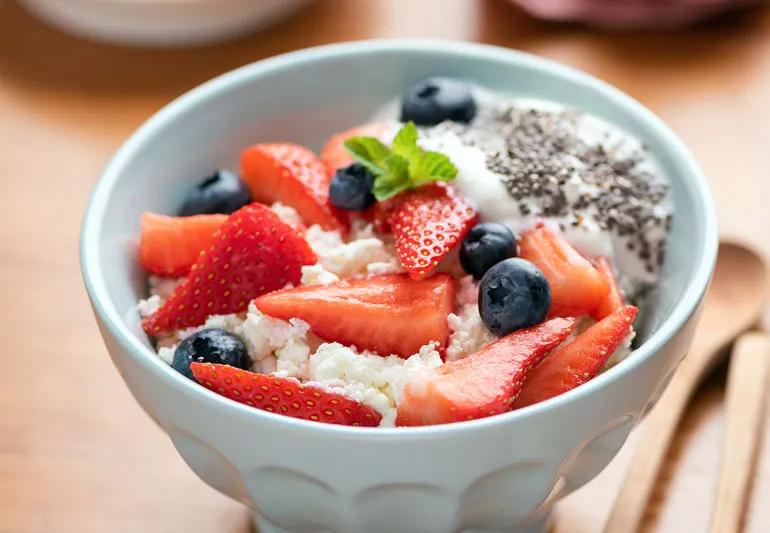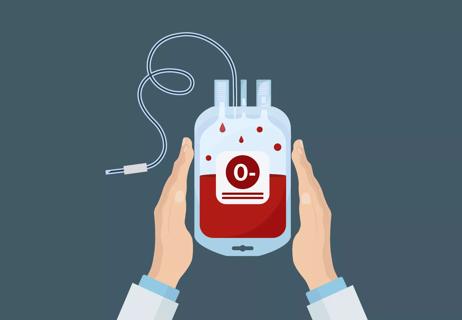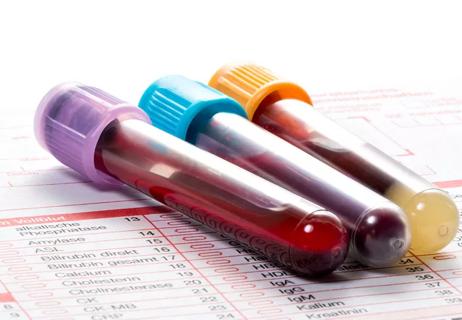Focus on eating iron-rich foods and hydrating

Donating blood is a selfless act that helps others. But before and after you give, focus on your health by making wise selections regarding what you eat and drink.
Advertisement
Cleveland Clinic is a non-profit academic medical center. Advertising on our site helps support our mission. We do not endorse non-Cleveland Clinic products or services. Policy
Your body’s natural recovery process after donating blood can be boosted by what hits your plate and fills your glass. Getting the right nutrients and hydrating can help you avoid fatigue and more quickly replenish a depleted blood supply.
So, what should be on your menu? Let’s dig in with family medicine specialist Sarah Pickering Beers, MD.
Here’s the good news: You’ll be eating pretty well if you follow advice on what to eat before donating blood, says Dr. Pickering Beers. The suggested foods could fill a lot of favorite meal lists.
Most of the recommendations center on upping your intake of iron, which helps make red blood cells. Iron is a building block for hemoglobin, a protein in red blood cells that carries life-sustaining oxygen around your body.
So, on to meal planning!
Your diet delivers two different types of iron — simply classified as “heme iron” and “nonheme iron” — to your system. Of note: Your body takes in heme iron much more efficiently than nonheme iron.
“You absorb about 30% of the heme iron in food compared to less than 10% of nonheme iron,” says Dr. Pickering Beers.
It’s best to start going a little bit heavier on iron-rich foods a few days before donating blood to avoid flirting with anemia. The goal is to keep your iron levels up and help your body run the way it should after giving blood.
Advertisement
Foods loaded with heme iron are typically animal-based. Your choice of dishes includes:
Nonheme iron is plentiful in items found in the produce aisle and other sections of the grocery store. Food rich in nonheme iron includes:
As it turns out, one of vitamin C’s superpowers is the ability to help your body better absorb nonheme iron, shares Dr. Pickering Beers. Many fruits, of course, are excellent sources of vitamin C.
Oranges get all the attention, but other fruits packed with vitamin C include:
Roughly 90% of your blood is water, so you’ve got some fluid to replace after donating a pint of blood to avoid dehydrating. That process should start ahead of your appointment and continue afterward, says Dr. Pickering Beers.
She recommends drinking an extra 16 ounces of water (or other nonalcoholic fluid) the day before your donation. Afterward, aim to drink an extra 32 ounces.
Keeping your fluid levels high is key to keeping your blood pressure at the right level during your blood donation. (Loss of blood can lead to a drop in blood pressure, which could cause dizziness.)
An added bonus of being hydrated? Your veins tend to pop up a little more, which can make the donation process go more smoothly.
Not eating or drinking the wrong thing before donating blood is equally important as eating and drinking the right things. Before giving blood, avoid:
On a special note, also avoid taking aspirin for at least 48 hours before your appointment if you’re donating blood platelets. (The way that platelets react to aspirin can make it more difficult for blood to clot.)
Advertisement
For starters, eat the snack donors receive after doing their good deed. Make sure to get something to drink, too. As noted earlier, try to drink an extra 32 ounces of water as the day goes on.
It’s best to stay away from alcohol the rest of the day, too. Blood-alcohol levels can shoot very high, very fast if you imbibe while a pint low on blood.
It’s best to avoid strenuous activity for 24 hours after donating blood. “Regular daily activities are fine, but don’t plan a workout,” says Dr. Pickering Beers. “The reality is, your body is working with less blood. Give it some time to recover.”
Adding a workout in before donating blood is fine. Just make sure to stay hydrated.
Studies show that frequent blood donors — or those who give blood three or more times a year — can be at risk of developing an iron deficiency. People are allowed to make a whole blood donation once every eight weeks.
The American Red Cross recommends frequent donors take an iron supplement or multivitamin with iron to maintain healthy iron levels.
Every two seconds, someone in the United States needs blood and/or platelets, according to the American Red Cross. And every single blood donation has the potential to save multiple lives.
Advertisement
Blood can’t be manufactured, either. It must come from donors. “It is incredibly important to donate blood,” encourages Dr. Pickering Beers. “It’s a safe process, too. Eat healthy and drink enough water in advance and you shouldn’t notice any difference in how you feel.”
Advertisement
Learn more about our editorial process.
Advertisement

People of any blood type can receive donations of Type O-negative blood

Fewer than 50 people have ever been found to have golden blood, a genetic change that’s also called Rh null blood

Your veins might look blue, but that’s not the color of the blood flowing inside

Introverts refuel with quiet time, while extroverts thrive on connection

Sleep disorders, mental health conditions and other health concerns can all affect the quality of your sleep

Babies are born with very little of this vitamin, which plays a critical role in the blood clotting process

Medications, vitamin deficiencies and age can make you bruise more easily

Understanding how your health information is recorded can help you take charge of your care

Wearing a scarf, adjusting your outdoor activities and following your asthma treatment plan can help limit breathing problems

Your diet in the weeks, days and hours ahead of your race can power you to the finish line

When someone guilt trips you, they’re using emotionally manipulative behavior to try to get you to act a certain way